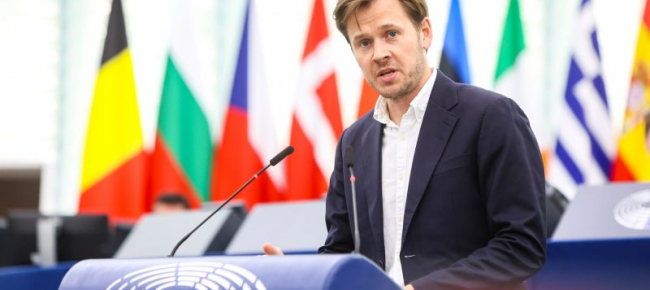Заголовок
Why Europe needs an ambitious energy efficiency targetCreated date
20 09 2022For years, some of us have been saying that the safest, cleanest and cheapest energy is that which we don’t use. With the Ukraine war and rapidly falling gas supplies coming from Russia, this is truer than ever, writes Niels Fuglsang MEP, who defends a 14.5% energy efficiency target for 2030.
Niels Fuglsang is Member of the European Parliament and Rapporteur on the Energy Efficiency Directive.
You have to go back to the 1970s oil crises to find a comparison to what is happening now to Europe’s energy system.
The combination of Putin’s chokehold on gas supplies, the most severe drought on record and a failing conventional power fleet are creating the conditions for a perfect storm.
Households, businesses and governments are being hit with ever-increasing energy bills, which in turn are driving inflation, devaluing the Euro and forcing central banks to increase interest rates and borrowing costs.
What can we do about it?
For years some of us have been saying that the safest, cleanest and cheapest energy is that which we don’t use. Today this is truer than ever. But Europe has been sleeping at the wheel.
Yes, there have been EU-wide energy saving goals for the past decade. But they have been voluntary, with mixed results at best. Energy efficiency investments increased, but energy use fell by only 4% between 2010 and 2019. Without realising it, the continent has been cruising on autopilot into deeper and deeper dependency on imported energy.
And yet the EU is not starting from nowhere: we already have legislation for energy efficiency, building renovation and efficient products. It’s a question of turning up the dial, quickly, and this is beginning to happen.
In its response to the invasion of Ukraine, the European Commission made a legal proposal to increase the EU’s 2030 energy efficiency target from 9% to 13% and to make it mandatory for the Member States.
This is a big step forwards but we need to go further. Together with my colleagues in the Parliament’s energy committee, I have proposed a 14.5% target, with ambitious goals for making public buildings like schools and hospitals more energy efficient.
A few percentage points may not sound like much. But a 14.5% target could cut gas imports by 190 bcm per year. That’s equivalent to three and a half times the capacity of Russia’s Nord Stream 1 pipeline.
Meanwhile, the International Energy Agency has outlined a wide range of short-term emergency measures, like driving less or heating buildings more reasonably, to reduce demand and get us through the coming winter.
Taken together, these policies can address the key challenges of price spikes and inflation, import dependency and greenhouse gas emissions.
Consider today’s burning issue: the reform of the electricity market.
The basic principle of the current market system is that the electricity prices from all types of generation – renewables, nuclear, coal, oil and gas – are set by the single most expensive generator. Thus electricity from renewables is being sold on wholesale markets at the same price as gas-generated power. This is what is hurting consumers so much.
One option, which energy ministers are discussing with the Commission, is to change the market rules. But the core long-term solution is to prioritise energy efficiency and reduce the need for gas-powered generation altogether.
What happens next is up to us.
My colleagues from the Parliament and I will soon be beginning negotiations with the representatives of the Council on the ambition of the EU’s energy efficiency directive. This is going to be a test of Europe’s will and capability to act.
Some will say a 14.5% target is too much, that renovating all public buildings is too big a challenge. But the key point in today’s energy politics is that our decisions have to be future-proof.
One of the reasons Europe is so dependent on Russian energy is that, over the past decade, gas was aggressively marketed as a transition fuel. It seemed simpler to switch from coal to gas than to go all-in on energy efficiency and renewables. We have to learn from this, or sleepwalk into another crisis.















